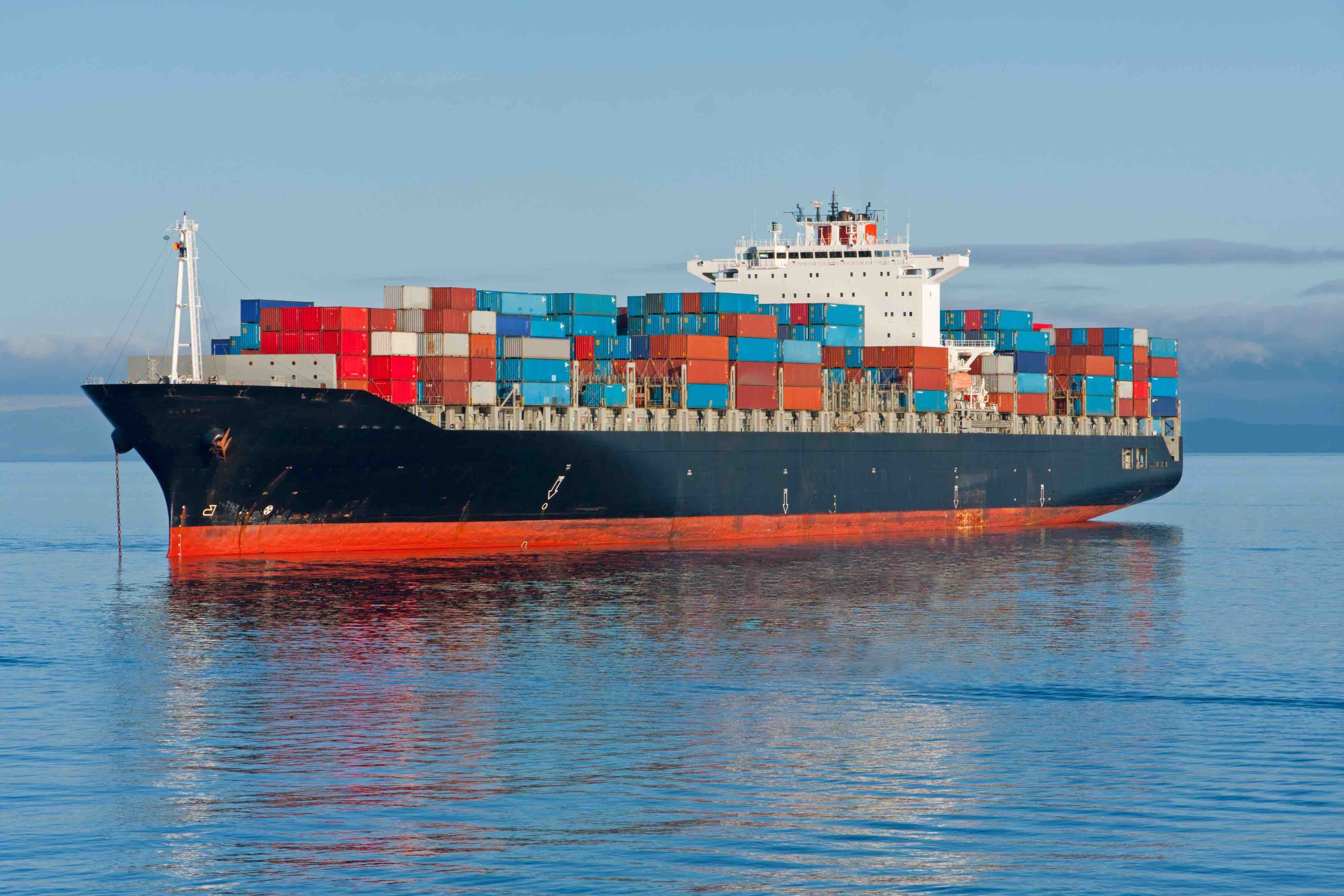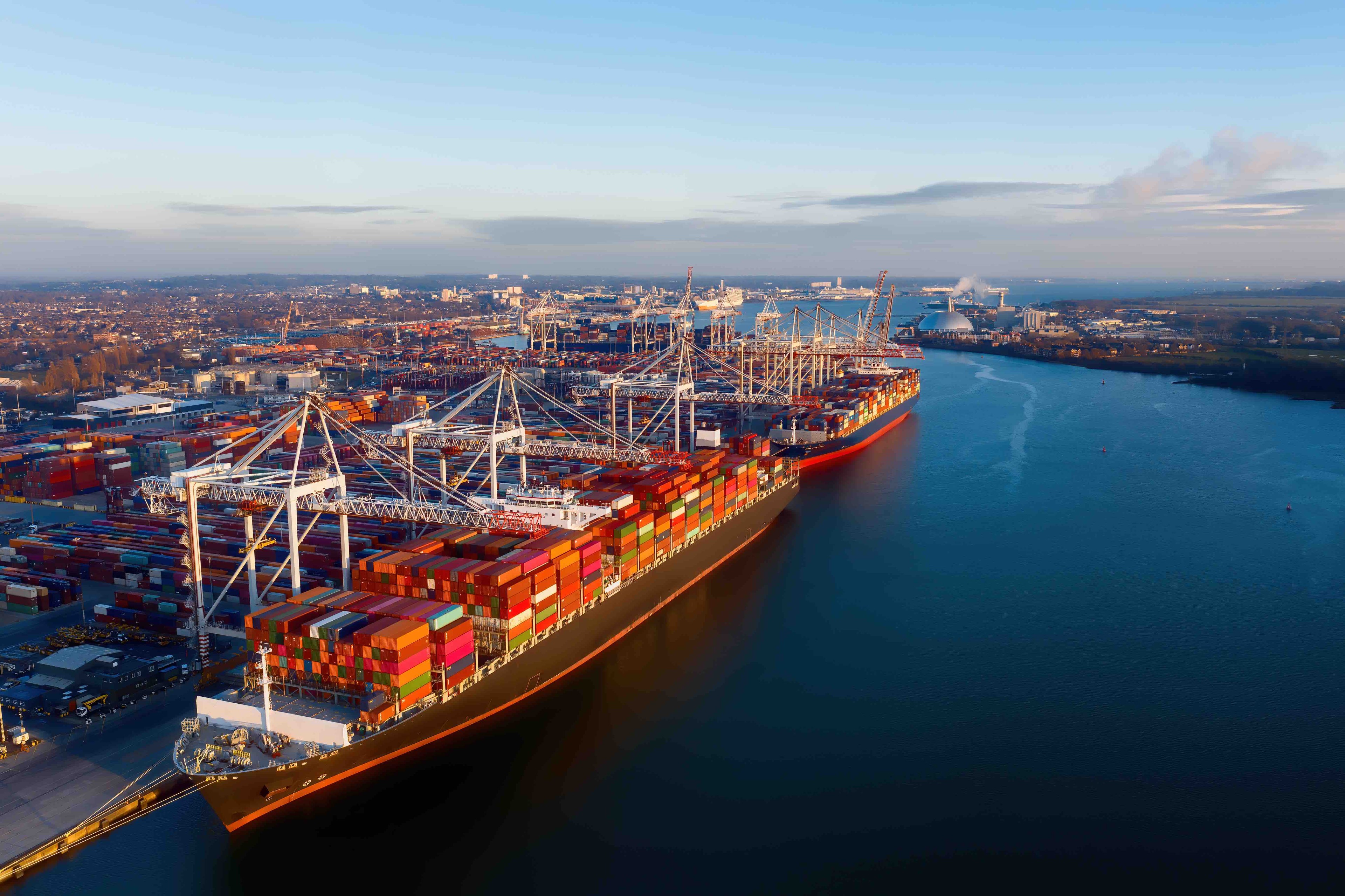Contact Us
As the Red Sea Crisis persists, we deliver regular updates on its impact across global supply chains, commerce, and consumers in the news feed below. Should you have any questions or concerns about your shipments, please reach out to us HERE.
14/05/2024
Global Ocean Freight Update – Continued Effects of the Red Sea Crisis
The ongoing crisis in the Red Sea continues to impact the global ocean freight industry. Vessels are still being rerouted around the Cape of Good Hope, and will be for some time to come.
The resulting increase in freight rates and diminished service reliability, as longer transit times cost more, have led to ports becoming congested, and capacity being contracted with vessels placed upon longer transit loops and equipment shortages developing. These problems have been further compounded by a surge in booking volume, and vessel operators prioritising higher paying freight, moving equipment and capacity to suit.
During this period of uncertainty, especially for freight movements ex Asia, our teams at Woodland Group advise to make bookings as early as possible and for shippers to add up to 4 weeks’ extra time into their supply chain planning as transit times are expected to be much longer than traditionally planned and advised. The current ocean freight issues and disruption replicate those experienced throughout COVID. At Woodland Group, we have built additional solutions to add certainty and increase transit speed.
- Offering Ocean freight options ex Asia with guaranteed space, equipment, and departure.
- Sustainable, fast, reliable, cost-efficient, and safe rail transport with departures multiple times a week for LCL and FCL freight on both Economy and Express trains from Asia to Europe, offering enhanced transit times.
- A wide range of Air Freight services for those with set deadlines needing extra security and peace of mind.
- Sea-Air services, which offer the best combination of both ocean freight and air freight by delivering for the most efficient routing and transit times possible.
For any enquiries or assistance with your supply chain, please contact your usual Woodland customer service representative.
26/02/2024
Attacks continue while retailers increase stock volumes
The latest reported attack occurred last Monday this week when the crew of a UK-registered cargo ship abandoned the vessel after it was hit by a missile. No injuries were reported. On Tuesday, Houthi militia also claimed responsibility for a strike targeting an MSC-controlled bulk carrier crossing the gulf, with no reports of significant damage or injuries resulting from the incident.
Legal consequences are also emerging regarding the rights carriers can claim in war-risk circumstances. Many carriers have turned to Force Majeure to terminate or modify contracts, while other contracts include an express provision allowing vessel owners to cancel or terminate transits should there be a risk of war or related activity. As mentioned in our 18th December update, insurance premiums are directly impacted as a consequence and have been on the rise since then.
Economic consequences continue to significantly impact shippers who rely on spot rates, Despite the sharp increase in spot rates, contract pricing has remained stable, while carriers such as Hapag-Lloyd have introduced peak season surcharges from the end of January. However, long-term rate trends will be subject to demand, despite adjustments in capacity occurring in the next months. A general 0.5% increase in inflation is also expected in the long run if the crisis persists.
Furthermore, retailers have begun increasing the volume of their backup stocks to avoid product shortages and are starting to adapt to their shipments taking longer due to rerouting around Africa, which seems to be the new supply chain normality.
29/01/2024
Attacks intensify
The most recent incident on Friday resulted in oil tanker Marlin Luanda catching fire after being struck by a missile. The fire was extinguished and the crew is reportedly safe. Earlier last week an attack on two US-operated Maersk ships transporting military supplies was attempted. Despite being escorted by the US Navy, the two vessels had to execute a U-turn after the attempt nearby was detected. The carrier has suspended all Red Sea transits for its subsidiary's ships as well.
More geopolitical complications are arising from the conflict, impacting global politics and commerce. The Houthis have explicitly expressed their intention to target ships affiliated with the US, UK, and any Israeli interests while facilitating safe passage through the canal for Chinese and Russian vessels that expressed their support against the Western-led military operations. Chinese-operated vessels are broadcasting their Chinese identity while transiting through the Red Sea to ensure safe transit.
The US and the UK have imposed sanctions on four senior Houthi officials for their role in supporting or directing attacks on commercial shipping. These sanctions represent the first coordinated UK and US action to prevent the relevant Houthi individuals from accessing any financial resources or assets held in the UK and USA.
Supply chains and the global economy continue to feel the impact of the conflict and as a result, industries worldwide from manufacturing to retail, are struggling with production and inventory management challenges. However, analyses suggest that the Red Sea impacts might have reached a limit, with rates in most trade routes levelling off and European lanes indexes falling back.
18/01/2024
New Attacks
Last weekend saw the US and UK, alongside allied nations, conduct air and missile strikes in Houthi-controlled areas of Yemen to end attacks on commercial ships in the Red Sea. Despite these efforts, on January 15 the Marshall Islands-flagged vessel 'Gibraltar Eagle' was struck by an anti-ship ballistic missile launched from a Houthi-controlled area. No injuries or severe damage were reported, and the ship continued its journey. Another attack was launched the following day hitting the bulk carrier Zografia, with only minor damage reported.
So far, Suez Canal traffic has decreased by 68% with 264 ships having been rerouted.
The ongoing rerouting through the Cape of Good Hope, coupled with disruptions at the Panama Canal, is driving growth in usage of the Asia to West Coast route. Voyages from Shanghai to New York now take 43 days, while to Los Angeles approximately 17 days. This trend is expected to continue into Q2-Q3 2024.
Further repercussions of the Red Sea diversions include a significant surge in container demand, with shipping companies having placed orders for over 750,000 TEU ISO containers from China in the last two months. A sharp increase in war risk insurance premiums for ships sailing through the Red Sea, reaching 1% of the ship's value, as well as an increase in demand for effective shipment insurance has also been the result.
The Federal Maritime Commission (FMC) has scheduled a public hearing on 7th February 2024 to investigate how the Red Sea disruptions impact commercial shipping and the global supply chain, aiming to gather information on the effects of attacks on commercial shipping and the steps taken in response.
11/01/2024
Global Supply Chain Impact
The largest attack on international shipping since the attacks began in November, occurred last Tuesday. U.S. and UK forces intercepted the threats, and no damage was reported. This ongoing security threat has led several countries to urge the United Nations to address the attacks on commercial vessels.
Recent reports indicate that COSCO has suspended shipping to Israel, while Maersk and Hapag-Lloyd have denied a presumed safe passage pact with Houthis. Additionally, Maersk recently announced that all their vessels will now be rerouted from the Suez Canal towards the Cape of Good Hope, meaning that all the previously paused journeys will resume. Delays of up to two weeks are expected on shipments. Similar dynamics have been observed on Asia to US East Coast shipments, which are now more frequently rerouted to West Coast ports and then transported via intermodal rail service.
The reroutings, requiring increased fuel, crew time, and operational resources, have triggered a 60% surge in container spot freight rates, significantly impacting Asia to U.S. West Coast routes. The diversions have also resulted in capacity shortfalls of up to 40%, prompting global retailers to rush into stocking up and explore alternative transportation routes ahead of the Chinese New Year. However, it is expected that post-mid-January, capacity will meet demand, and spot rates will decline. Further disruptions to global supply chains are expected with equipment shortages due to longer transit times and congestion at ports having already been registered across the main Chinese locations, and effects on the shipping market are expected.
03/01/2024
Attacks continue - Maersk vessel hit by missile
While the US-led international coalitions increase defensive measures in the Red Sea to intercept dozens of Houthi munitions and prevent hijackings, carriers continue to adjust their routes and 299 vessels are now rerouted towards the Cape of Good Hope. Approximately 18% of global shipping capacity is being affected.
Concerns remain that the afore-mentioned security measures will not be sufficient for major shipping companies to resume the Red Sea transits any time soon.
Maersk, whose containership was struck by a missile over the weekend, initially paused all Red Sea and Suez Canal transits for 48 hours. Yesterday, they announced an extension of the transit pause until further notice and expressed the intention to resume Red Sea transits as soon as ‘operationally possible’. In the meantime, in cases where feasible, they are rerouting most vessels via the Cape of Good Hope, until safety at the Red Sea is restored.
Similarly, Hapag-Lloyd and MSC have confirmed that their vessels will persist in rerouting via Africa until at least January 9th and until further notice. The unstable conditions continue to exert upward pressure on freight rates, insurance premiums and spot rate indexes, causing further disruptions and delays to global supply chains.
29/12/2023
Capacity squeezes
Despite the recently formed multi-national coalition to increase security in the Red Sea, drone and missile attacks targeting commercial shipping continue to interrupt vessel movements on this busy route.
As a result, carriers are increasing the number of vessel diversions, rerouting mainly around Africa at this time.
The effect on global ocean freight management has been significant, with space becoming increasingly tight and rates increasing daily as we head into January.
22/12/2023
Rerouting and equipment shortages
While countries such as the US, UK, Canada, France, Italy, and the Netherlands most recently announced their intent to create an enhanced naval protection force operating in the Red Sea in an attempt to ward off mounting attacks from Yemen’s rebel Houthis on merchant shipping, shipping lines continue to reroute and halt operations in the Red Sea and thus divert traffic away from the Suez Canal.
Most vessels are rerouting via the Cape of Good Hope, adding around 10 to 14 days to all journeys from Asia to Northern Europe. With 12% of annual global trade passing through the Red Sea, and diversions creating bottlenecks elsewhere, these recent events continue to impact the current global shipping landscape, and longer-term ramifications such as equipment shortages ahead of Chinese New Year are expected as vessels usually bringing in empty containers needed for peak season end up stuck in other places. Surcharges have already been announced by some carriers, with more expected to be announced in the coming days.
Simultaneously, disruptions at Chinese ports are arising, further affecting transit times and operations. As a consequence, rates are expected to increase across the board, and congestions at European ports are anticipated.
18/12/2023
Carriers announced suspended journeys
Over the weekend, the situation worsened with new air strikes and attacks on merchant vessels. Prioritising the safety of crews and vessels, major carriers including MSC, Maersk, CMA, and Hapag-Lloyd, announced the suspension of operations in the Red Sea, affecting Asia-to-Europe journeys and wider supply chain management.
Some vessels were instructed to seek safe areas and temporarily pause their journeys, while others were rerouted towards the Cape of Good Hope, adding approximately 10 days to their journey durations from Asia to Northern Europe.
Currently, carriers avoiding Red Sea routes account for around 56% of global container capacity, with more shippers expected to follow a similar approach.
Today, the Joint War Committee decided to extend the areas of the Red Sea and the Gulf of Aden included in the Listed Areas defined as high-risk. This means that carriers operating in these areas are required to notify insurance underwriters of voyages passing through them and will incur additional premiums. As a consequence, carriers are implementing war risk premiums to address escalating risks and uncertainties, leading to increased operational costs. Depending on the scale and duration of disruptions, ocean freight rates are expected to rise in the future, especially on Asia-to-Europe loops.
Concerns are also arising around the safety of ports in the Listed Areas and their compliance with the trading limits specified in the contracts, as well as the rights of owners to deviate to another port and whether that’s possible without breaching the bill of lading.
06/12/2023
Global supply chain impacted as Red Sea becomes centre of air strikes
As a result of ongoing geo-political conflicts, the Red Sea has become a focus centre, with international merchant vessels being targeted as part of escalating attacks. Resulting disruptions in the Supply Chain Industry are expected to slow down global trade and increase costs.
International vessels have been attacked by UAVs over the last few days, amongst them OOCL-operated Number 9, a Panama-flagged ship owned by China's COSCO, the UK-owned bulk carrier, Unity Explorer, a Japan-owned bulk carrier, and a South Korea-owned VLC.
The Red Sea and the Suez Canal are key routes for international ocean freight, facilitating around 30% of the yearly global traffic, and recently seeing increased traffic due to the Panama Canal disruptions.
As a consequence of the unstable geopolitical conditions and the attack threats, war risk surcharges and premiums are becoming more common for shippers transiting through the Red Sea. Alongside increased operational costs, potential delays due to rerouting are expected, posing new challenges to the global supply chain.
You may also like:
New customs requirements on Ireland to Great Britain movements from 2024
US Government Shutdown - Supply Chain Impact


